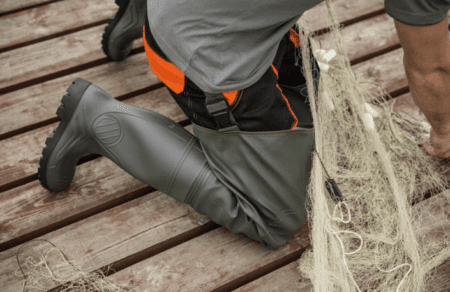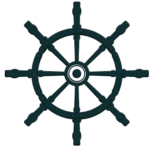 What is a Maritime Injury?
What is a Maritime Injury?
A maritime injury applies to workers who are hurt while aboard a vessel, offshore platform, or at a dock. Unlike other workers hurt on the job, maritime workers are not eligible for workers’ compensation. However, they have various options to seek compensation under maritime law from those responsible for their injuries and losses.
If you suffered injuries in a maritime accident and are considering filing a maritime personal injury claim, you’ve come to the right place to better understand your options. Maritime injury cases can be complicated and are quite different from the typical personal injury claim both in terms of complexity and the potential benefits.
Contact an experienced maritime lawyer right away to discuss your case and learn of your rights and options for seeking compensation.
Types of Maritime Injury Claims
In general, there are several types of personal injury claims you can file if you’re an injured worker in the maritime industry. In fact, some of the claims under maritime law also apply to non-workers who were hurt on a vessel, such as cruise ship passengers or passengers involved in recreational boating accidents.
If you’re unsure whether your situation warrants legal action under maritime law, a maritime personal injury attorney can help you determine if one of these claims is right for you.
Let’s take a look at the most common maritime personal injury claims.
Jones Act Claim
The first one is the Jones Act claim (sometimes known as a Merchant Marine Act claim). It’s a statute that the federal government passed that protects injured maritime workers. However, only workers who are classified as a “seaman” may file a claim. This is someone who spends 30% or more of their time on a vessel in navigable waters.
Unlike worker’s compensation, Jones Act claims are filed directly against the employer of the injured seaman. The Jones Act helps maritime employees pursue compensation for lost wages, medical expenses, disability, and more. If you’re able to prove that employer negligence caused your injury, then this is the route you’ll want to take to obtain maximum compensation.
Maintenance and Cure Claims


If your employer refuse to pay you the full amount, then a maritime personal injury lawyer can pursue claims for maintenance and cure. This puts your employer at greater financial risk, since they will likely be forced to compensate you fully as well as paying additional punitive damages.
Unseaworthiness Claim
An unseaworthiness claim requires maritime employers to provide safe workspaces and seaworthy vessels. If someone is injured because of the poor condition of the vessel, then a maritime personal injury claim can be filed for unseaworthiness. The shipowner or employer could bear liability for any injuries and losses that were sustained because of unsafe conditions or unseaworthiness.
You can also have a maritime personal injury attorney file an unseaworthiness claim and seek any damages you suffered due to the unsafe equipment or vessel conditions. Proving unseaworthiness can be difficult at times, but with the right evidence and documents, we’re able to show how employers could’ve provided a safer workspace for crew members.
Negligence Claim
Another type of maritime personal injury claim is the negligence claim. A negligence claim basically means that you are demanding someone else repay you for damages they caused through their careless or reckless actions.
If the company failed to follow safety rules, then your attorney could argue that your injury occurred because of their negligence. If you have a slip and fall on the slippery boat deck, resulting in broken bones or shoulder injuries (both common in maritime cases), then your employer is potentially at fault for not providing non-skid surfaces or taking other precautions.
Under a maritime law negligence claim, you can recover any damages you suffered:
- Pain and suffering
- Wages loss
- Medical costs or any other harms
It’s not always a simple matter of proving your negligence claim, so we offer these 5 tips for proving negligence after an injury.
Filing More than One Maritime Personal Injury Claim at a Time
In many of our cases, our clients will pursue claims under the Jones Act against their employers, and at the same time, they pursue maritime law negligence claims against any responsible third parties who may have also contributed to their maritime accidents. This could include crew members and other maritime workers.
You may have been working for your company but on a vessel owned by another company, or you may have been working with other company employees who contributed to your accident. It’s not uncommon for us to file Jones Act and maintenance and cure claims against an employer, maritime negligence claims against a non-employer, and even an unseaworthiness claim against yet another party that owned the rig or vessel.
While the legal process may sound complicated, all the claims are really under one filing. By providing expertise in maritime law processes, a good maritime injury law firm can help you maximize your recovery.
Who Does Maritime Law and Admiralty Law Apply To?

- Jones Act seamen
- Maritime workers
- Deckhands
- Harbor workers
- Oil rig workers
- Tugboat workers
- Barge workers
- Other workers in the Gulf of Mexico
- Workers on the Mississippi River
You also may be able to file a maritime claim if you’ve been injured while working on any of the following:
- An oil rig
- Drillship
- Construction barge
- Floating crane barge
- Cargo ship
- Towboat
- Crew vessel
- Tanker
- Tugboat
- Supply vessel
- Fishing vessel
- Other floating vessel/structure
Longshore and Harbor Workers Compensation Act

- docks;
- piers;
- harbors;
- terminals;
- drydock facilities; and
- any other facility adjoining navigable waters used for loading, unloading, repairing or building vessels.
 What Financial Compensation Can I Receive in a Maritime Injury Lawsuit?
What Financial Compensation Can I Receive in a Maritime Injury Lawsuit?
Depending on your situation, you may receive compensation for
- Your medical bills
- Pain and suffering
- Lost wages (including overtime)
- Physical disability
- Mental anguish
- Emotional distress
- Disfigurement
- Loss of enjoyment of life
- Loss of companionship
- Mental disability
- Property damage
- Loss of fringe benefits
 Maritime and Jones Act Claim FAQs
Maritime and Jones Act Claim FAQs
These are some of the questions we hear the most from our clients.
I was injured while working on or near the water. What are my rights?
If your injury occurred while you were working on or near the water then you may be entitled to file a claim under general maritime law, the Jones Act, the Longshore and Harbor Workers’ Act, or the Death on the High Seas Act.
You have the right to pursue a lawsuit and recover damages. An experienced maritime injury attorney, like those of us at The Young Firm, can dramatically improve your chances of success.
I see your law firm is located in Louisiana, but I wasn’t injured there. Will you still take my case?
In a word, yes. Our personal injury lawyers have handled maritime cases with clients from Louisiana, Mississippi, Alabama, Arkansas, and Texas as well as workers injured in the Gulf of Mexico and Mississippi River.
In addition, we have helped injured seamen across the United States by working with their local attorneys to ensure they have a skilled and experienced maritime injury legal team on their side.
Will I be blackballed from future maritime jobs if I bring a lawsuit against my employer?
We’ve been representing injured maritime workers for more than 50 years and we believe there is no blacklist. In fact, there are laws that prevent your former employer from revealing information like injuries you may have received while on the job. We’ve had several former clients who received excellent settlements later return to work offshore after they recovered from their injuries.
Be Careful Who You Trust
As word gets around that you’ve suffered an injury, you’re likely to get plenty of “advice” from others. Your uncle might tell you how his friend sued the oil company he worked for and got a multi-million dollar settlement, or the company may tell you not to seek medical care from anyone but their specialists.
With all of this conflicting injury advice coming at you at once, it can be difficult to decide to whom you should listen – if anyone – for help on how to handle a maritime personal injury claim.
After a serious offshore accident, you may get solicitations from “victim advocates” who claim to protect maritime workers by involving them in lawsuits and complicated legal cases. Your company may coerce you into seeing its doctors to confirm your injuries before it pays you any benefits.
If you’re getting hit hard with people offering to “help” with their advice and ideas, don’t accept their words as the final answer. Do your own independent research to find the answers to your own questions before you take advice from these sources.
When you find your own answers you can verify that the information is coming from a trusted source such as the U.S. Department of Labor’s website or a trusted maritime injury law firm.
Avoid Unfair Tactics for Your Rightful Compensation after Offshore Injury
Unfortunately, it’s common to see employers and insurance companies taking advantage of maritime workers. Be cautious of these deceptive tactics:
- Getting you to sign documents you don’t understand – medical release forms are the most common, and signing one without knowing what it means could give the insurance company information to damage your claim.
- Demanding you see the company physician – you have the right to choose your own physician for any long-term treatment for your injuries.
- Promising your medical care will be handled by your employer as long as you don’t file a claim – There’s no guarantee you’ll get the complete care you need for long-term recovery if you don’t file an injury claim and have the accident documented.
- Abruptly forcing you to give a recorded statement – insurance companies often catch claimants off guard during these interviews and coerce them into damaging their own claims.
Before you file your maritime accident claim, you need to know what behaviors and events to avoid so you don’t damage your claim. A Louisiana maritime injury lawyer can help you throughout the claim process so you have the best shot at a fair settlement.
Should I File a Maritime Injury Claim and Sue My Employer?
There is no short answer to this question. You want to protect your career, your family and your health, and you’re in a very tough position now. If you sustained a moderately serious injury and you believe the company or one of your co-workers did something wrong or incorrect that caused or contributed to your injury, then you are probably better off filing a claim. A “moderately serious injury” refers to one that you would be nervous to list on an employment application with another company or one you think another company would find important in deciding whether or not to hire you.

The Place to Turn for Your Maritime Injury Claims
As an injured maritime worker, you have rights and protections under federal law to recover compensation for the damages you incurred because of someone else’s negligence. The New Orleans maritime injury attorneys at The Young Firm can explain your rights and legal options for getting the compensation you need at no cost.
Call us today for a free case evaluation and discover how we can help you pursue a negligence claim, Jones Act claim, or another legal action to get fair compensation for you injury related losses.
For more information, we offer several free publications that will help you make some very important decisions about your future.
More maritime injury claim articles:

 What is a Maritime Injury?
What is a Maritime Injury?

 What Financial Compensation Can I Receive in a Maritime Injury Lawsuit?
What Financial Compensation Can I Receive in a Maritime Injury Lawsuit?